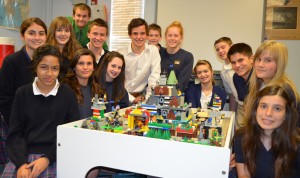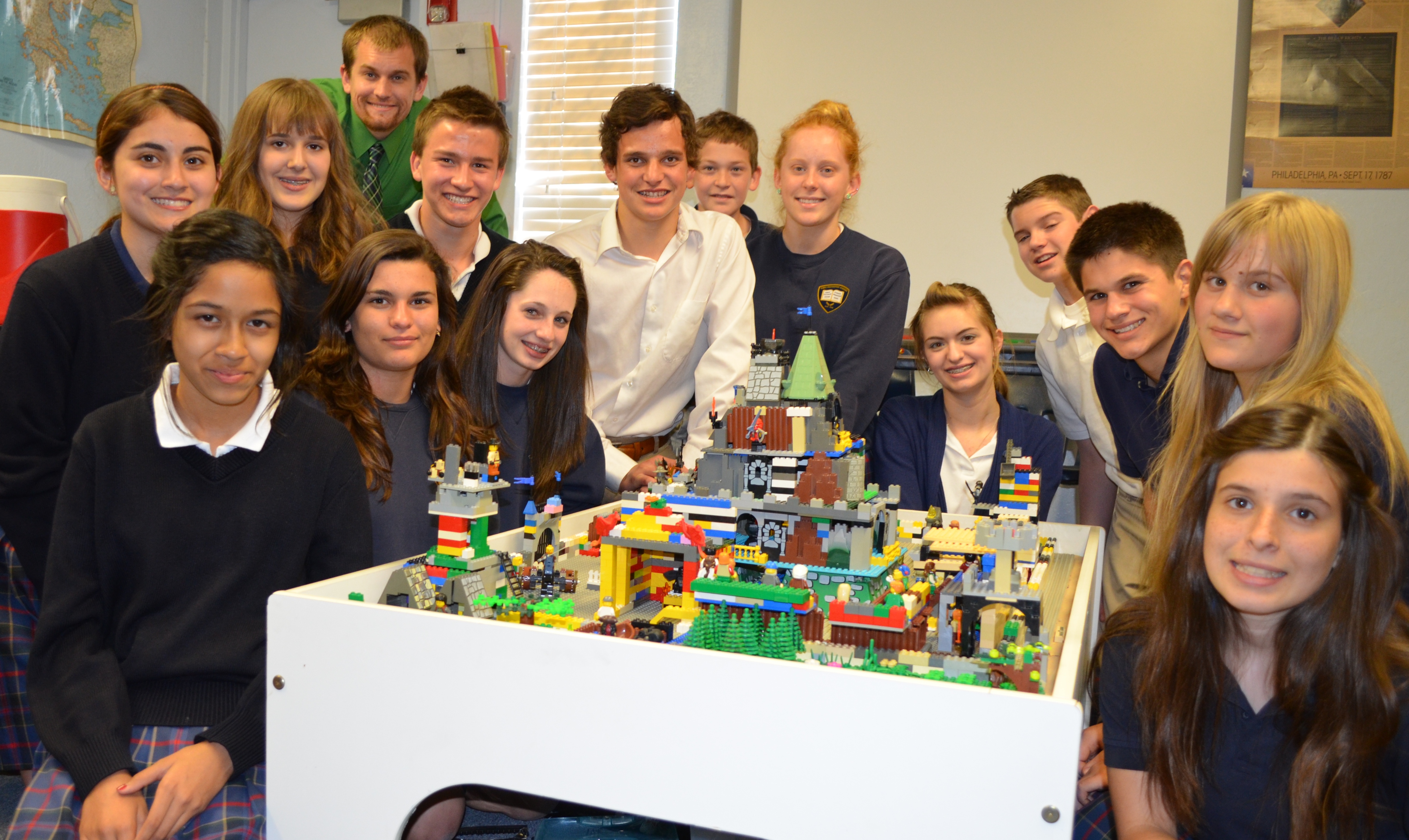By Chris Moffitt
 “Mount your chariots! Prepare your cavalry! Assemble your legions!…ATTACK!!!”
“Mount your chariots! Prepare your cavalry! Assemble your legions!…ATTACK!!!”
Recently, the freshman Latin class, taught by Mr. Bolt, colonized, built, and defended the city of Cilicia out of…yes, call it nerdy if you wish…LEGOS. In antiquity, Cilicia was a well-situated port in the south coastal region of Asia Minor that became part of the Roman Empire. The only disadvantage of the city was constant harassment by pirates.
The task of the freshman Latin class was to construct the city of Cilicia complete with a harbor, Roman forum, capitol building, amphitheater, temples, houses, shops, and much more, while at the same time regulating necessities such as natural resources, the morale of the people, and the favor of the gods, and while defending and leading the city through a number of dreaded “random events.” Such events were obtained through a stressful roll of the dice and included unexpected monster sightings, gladiator fights, murder mysteries, destructive earthquakes, pirate attacks, and finally a huge barbarian invasion. Despite the challenging task ahead, the Latin students were very eager to begin this Lego project and it was (not surprisingly) greatly enjoyed by all.
According to Mr. Bolt, the purpose of the Cilicia project “was to envision an ancient Roman city in its physical form and in terms of the logistics involved in running such a community.” It was also to have “an interactive experience using a whole different set of skills and activities than purely reading Latin commonly engages.” Hopefully, the students “would get a sense of how complex a city really is” and learn to “appreciate the constantly changing nature of an ancient society.”
The project was very successful and even surprised a few people by being such a fun and engaging, but also orderly and educational, experience. Several students commented on what they learned through their Lego creation. “I learned that you cannot take any supplies for granted while doing something important. You must learn to utilize all that you have,” said Isaiah Brittain.
“I gained a new respect for the Roman populace and an idea of how difficult it would be to start a colony,” said Micheal Rines.
“I learned how a Roman town might function,” said Sophie Kniaz.
Finally, “I learned that teamwork is essential to the success of a colony and that there are many unobvious factors which must be considered in the making of such a colony,” said Gabe LeBeau.
Concluding with the (quite violent) demolition of the honorable colony of Cilicia, the Lego project was ended, but not before it left its legacy. The creation will always be remembered in the hearts of its creators, greatly anticipated by incoming Latin students, and secretly envied by all who dare call learning Latin nerdy — remembered so passionately that it might just become a tradition in the Latin classes of TPA.
